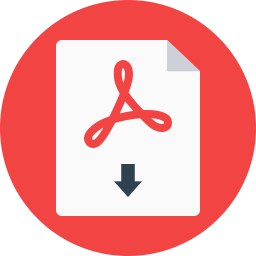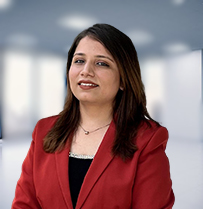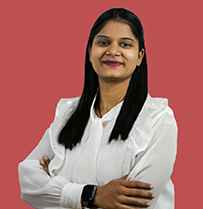
UGC NETUniversity Grants Commission National Eligibility Test
- Test Level-: National Level
- Eligibility-: Post-Graduation
- Duration-:3 Hours
- Medium-: Multiple
- Examination Mode-: Online
- Total Questions-: 150
UGC NET 2024: The National Testing Agency extended the UGC NET application form till May 19, 2024, and the last date for the NTA NET application fee is May 20, 2024. On the other hand, the application correction window will be activated from May 21 to 23, 2024. The NTA UGC NET exam is scheduled for June 18, 2024. Earlier, the UGC NET exam was scheduled to be conducted on June 16, 2024, but it was rescheduled due to its clash with the UPSC CSE (Civil Services Exam) on the same date.
To complete the UGC NET application 2024, the aspirants must pay the application fees according to their categories. The UR candidates have to pay INR 1150, and OBC INR 600, whereas the SC/ST/PwD/Women have to pay INR 325.
The candidates willing to appear for the NTA NET online exam must go through the UGC NET syllabus 2024 to make a good preparation strategy and secure maximum marks in the UGC NET
About Exam
UGC-NET is a test to determine the eligibility of Indian nationals for ‘Assistant Professor’ and ‘Junior Research Fellowship and Assistant Professor’ in Indian universities and colleges.
The selection of candidates for the following Fellowships will be made through the Ministry of Social Justice and Empowerment and the Ministry of Minorities Affairs:
• National Fellowship for Scheduled Caste Students (NFSC)
• National Fellowship for Other Backward Classes (NFOBC)
• National Fellowship for Persons with Disabilities (NFPwD)
Candidates aspiring for the Fellowships listed above, shall also have to apply for the Test
Eligibility
Qualifying Examination:
(a) General/Unreserved/General-EWS candidates who have secured at least 55% marks (without rounding off) in Master’s Degree or equivalent examination from universities/institutions recognized by UGC (available on the website: www.ugc.ac.in in Humanities and Social Science (including languages), Computer Science and Applications, Electronic Science etc. are eligible for this Test. List of subjects at Post Graduation level is attached as Appendix -V. The Other Backward Classes (OBC) belonging to Non-Creamy Layer/Scheduled Caste (SC)/Scheduled Tribe (ST)/Persons with Disability (PwD)/Third gender category candidates who have secured at least 50% marks (without rounding off) in Master’s degree or equivalent examination are eligible for this Test.
(b) Candidates who are pursuing their Master’s degree or equivalent course or candidates who have appeared for their qualifying Master’s degree (final year) examination and whose result is still awaited or candidates whose qualifying examinations have been delayed may also apply for this test. However, such candidates will be admitted provisionally and shall be considered eligible for award of JRF/eligibility for Assistant Professor only after they have passed their Master’s Degree or equivalent examination with at least 55% marks (50% marks in case of OBC-NCL/ SC / ST / PwD / Third gender category candidates). Such candidates must complete their Master’s degree or equivalent examination within two years from the date of NET result with required percentage of marks, failing which they shall be treated as disqualified.
(c) Candidates belonging to the Third gender category are eligible to draw the same relaxation in fee, age and Eligibility Criteria for NET (i.e. JRF and Assistant Professor) as are available to SC/ST/PwD categories. The subject-wise qualifying cut-offs for this category would be the lowest among those for SC / ST / PwD / OBC–NCL / General-EWS categories in the corresponding subject.
(d) The Ph.D. degree holders whose Master’s level examination have been completed by 19 September 1991 (irrespective of date of declaration of result) shall be eligible for a relaxation of 5% in aggregate marks (i.e. from 55% to 50%) for appearing in NET. The list of Post – Graduation courses and their codes is given at Appendix –VI
(e) Candidates are advised to appear in the subject of their Post – Graduation only. The candidates, whose Post Graduation subject is not covered in the list of NET subjects attached as Appendix -V, may appear in a related subject
(f) Candidates are neither required to send any certificates/documents in support of their eligibility nor printout of their Application Form or Confirmation Page to NTA. However, the candidates, in their own interest, must ensure themselves about their eligibility for the test. In the event of any ineligibility being detected by the UGC/NTA at any stage, their candidature will be cancelled and they shall be liable for legal action. NTA does not verify the information provided by the candidates during online registration and hence candidature will be purely provisional subject to the fulfillment of eligibility criteria.
(g) Candidates with post-graduate diploma/certificate awarded by Indian University/ Institute or foreign degree/diploma/certificate awarded by the foreign University/ institute should in their own interest, ascertain the equivalence of their diploma/degree/
certificate with Master’s degree of recognized Indian universities from Association of Indian Universities (AIU), New Delhi (www.aiu.ac.in).
Age Limit and Relaxation
JRF: Not more than 30 years as on 1st day of the month in which the examination is concluded i.e. 01.06.2023.
A relaxation of upto 5 years is provided to the candidates belonging to OBC-NCL (as per the Central list of OBC available on website: www.ncbc.nic.in) /SC/ST/PwD/Third gender categories and to women applicants. Relaxation will also be provided to the candidates with research experience, limited to the period spent on research in the relevant / related subject of post-graduation degree, subject to a maximum of 5 years, on production of a certificate from appropriate authority, which should be a recognized Indian university / Institute of National Importance / foreign university which is duly approved / recognized / accredited in its own Country / Public Sector Undertaking of Government of India / State Government in India. The research should not have been carried out towards completion of graduation or post-graduation degree(s). Three years relaxation in age will be permissible to the candidates with L.L.M. degree. A relaxation of upto 5 years is provided to the candidates who have served in the armed forces subject to the length of service in the armed forces upto the first day of the month in which the concerned UGC-NET is, conducted, i.e., 01.06.2023. Total age relaxation on the above ground(s) shall not exceed five years under any circumstances.
(i) Assistant Professor: There is no upper age limit in applying for UGC-NET for Assistant Professor
Highlights
|
Exam Particulars |
Exam Details |
|
Exam Name |
UGC NET (University Grants Commission National Eligibility Test) |
|
Conducting Body |
National Testing Agency (NTA) |
|
Exam Level |
National |
|
Exam Frequency |
Twice a year |
|
Mode of Exam |
Online - CBT (Computer-Based Test) |
|
No. of Applicants |
6.39 Lakh (June 2023) |
|
No. of Test-takers |
4.63 Lakh (June 2023) |
|
Exam Fees |
|
|
Exam Duration |
180 minutes |
|
Exam Time |
|
|
No. of Papers and Total Marks |
|
|
Total Questions |
50 MCQs in Paper 1 and 100 MCQs in Paper 2 |
|
Marking Scheme |
|
|
Language/Medium of Exam |
English and Hindi |
|
Exam Purpose |
Determine the eligibility of candidates for posts of only Assistant Professor or both Junior Research Fellowship (JRF) and Assistant Professor in Indian universities and colleges |
|
No. of Test Cities |
181 |
|
Official Website & Helpline No. |
|
IMPORTANT DATES
UGC NET 2024 Exam Dates & Schedule
Take a look at the table below for the complete schedule of UGC NET 2024 exam
|
Dates |
Upcoming Exam Dates |
|
20 Apr '24 - 15 May '24 |
UGC NET Application 2024 |
|
16 May '24 - 17 May '24 |
UGC NET Application Fee Last Date |
|
18 May '24 - 20 May '24 |
UGC NET Application Correction |
|
18 Jun '24 |
UGC NET Exam 2024 |
STEPS TO APPLY
UGC NET application form 2024 for the December session will be released in September/October 2023 along with the release of the UGC NET 2024 December notification. The steps to apply online for UGC NET registration are given below:
-
Visit the website- ugcnet.nta.nic.in
-
Click on the ‘Application form’ link mentioned at the bottom of the home page
-
Click on the ‘New Registration’
-
Enter the required details and complete the registration
-
Fill out the complete application form
-
Upload scanned pictures of passport size photo (10-200 kb) and signature (4-30 kb). Both images should be in JPEG format
-
Pay the UGC NET application fee (Gen - INR 1,100; OBC/EWS - INR 550; SC/ST/PwD/ Transgender - INR 275)
-
Save and submit the form
-
Download the confirmation page
UGC NET Paper 1 Syllabus 2024
UGC NET Paper 1 syllabus 2024 comprises topics from General Paper on Teaching and Research Aptitude, which is common and mandatory for all candidates. Check the complete UGC NET Syllabus for Paper 1 below.
Unit-I: Teaching Aptitude
- Teaching: Concept, objectives, levels of teaching (memory, understanding, and reflective), characteristics, and basic requirements
- Learner’s characteristics: Characteristics of adolescent and adult learners (academic, social, emotional and cognitive), individual differences
- Factors affecting teaching related to Teacher, Learner, Support material, Instructional facilities, Learning environment, and Institution
- Methods of teaching in higher learning institutions: Teacher-centred vs learner-centered methods; offline vs online methods (Swayam, Swayamprabha, MOOCs, etc.).
- Teaching support system: Traditional, modern, and ICT based
- Evaluation systems: Elements and types of evaluation, evaluation in Choice Based Credit Systems in higher education, computer-based testing, innovations in evaluation systems
Unit-II: Research Aptitude
- Research: Meaning, types, and characteristics, positivism and post-positivistic approach to research
- Methods of research: Experimental, descriptive, historical, qualitative and quantitative methods
- Steps of research
- Thesis and article writing: Format and styles of referencing
- Application of ICT in research
- Research ethics
Unit-III: Comprehension
- A passage of text is given. Questions are asked from the passage which needs to be answered.
Unit-IV: Communication
- Communication: Meaning, types, and characteristics of communication
- Effective communication: Verbal and non-verbal, inter-cultural and group communications, classroom communication
- Barriers to effective communication
- Mass-media and society
Unit-V: Mathematical Reasoning and Aptitude
- Types of reasoning
- Number series, letter series, codes, and relationships
- Mathematical aptitude (fraction, time & distance, ratio, proportion and percentage, profit and loss, interest and discounting, averages etc.)
Unit-VI: Logical Reasoning
- Understanding the structure of arguments: Argument forms, the structure of categorical propositions, mood and figure, formal and informal fallacies, uses of language, connotations, and denotations of terms, the classical square of opposition
- Evaluating and distinguishing deductive and inductive reasoning
- Analogies
- Simple and multiple uses for establishing the validity of arguments
- Indian Logic: Means of knowledge
- Pramanas: Pratyaksha (Perception), Anumana (Inference), Upamana (Comparison), Shabda (Verbal testimony), Arthapatti (Implication) and Anupalabddhi (Non-apprehension)
- Structure and kinds of Anumana (inference), Vyapti (invariable relation), Hetvabhasas (fallacies of inference)
Unit-VII: Data Interpretation
- Sources, acquisition and classification of data
- Quantitative and qualitative data
- Graphical representation (bar-chart, histograms, pie-chart, table-chart and line-chart) and mapping of data
- Data interpretation
- Data and governance
Unit-VIII: Information and Communication Technology (ICT)
- ICT: General abbreviations and terminology
- Basics of Internet, Intranet, E-mail, Audio and Video-conferencing
- Digital initiatives in higher education
- ICT and Governance
Unit-IX: People, Development and Environment
- Development and environment: Millennium development and Sustainable development goals
- Human and environment interaction: Anthropogenic activities and their impacts on the environment
- Environmental issues: Local, regional and global; air pollution, water pollution, soil pollution, noise pollution, waste (solid, liquid, biomedical, hazardous, electronic), climate change and its socio-economic and political dimensions
- Impacts of pollutants on human health
- Natural and energy resources: Solar, Wind, Soil, Hydro, Geothermal, Biomass, Nuclear and Forests
- Natural hazards and disasters: Mitigation strategies
- Environmental Protection Act (1986), National Action Plan on Climate Change, International agreements/efforts -Montreal Protocol, Rio Summit, Convention on Biodiversity, Kyoto Protocol, Paris Agreement, International Solar Alliance
Unit-X: Higher Education System
- Institutions of higher learning and education in ancient India
- Evolution of higher learning and research in post-independence India
- Oriental, conventional and non-conventional learning programmes in India
- Professional, technical and skill-based education.
- Value education and environmental education
- Policies, governance, and administration
For Paper 2 Visit on this link University Grants Commission - NET (ugcnetonline.in)
DownloadReference Books
- Trueman’s UGC NET /SET General Paper 1 by Trueman Publication
- UGC NET/JRF/SLET General Paper-1 Teaching & Research Aptitude by Arihant Experts
- NTA UGC NET/SET/JRF Paper 1- Teaching and Research Aptitude by KVS Madaan (Pearson Education)
- UGC NET/JRF/SLET General Paper-1 Teaching & Research Aptitude General Paper-1 by Upkar Prakashan
- Economics Trueman's UGC NET Economics By Srinvas Shirur
- UGC NET Political Science by Rukmini Bhattachjee
- Trumen's UGC NET Psychology by Dr. Swati Maharsh
- Truemen's UGC NET History by Promod Singh
- Toppers notes UGC NET paper 2 History
- Truemen's UGC NET Commerce by Parveen Kataria, Anshu Kataria and M. SHivani
- Trueman’s UGC NET Education by Gagan Manocha
UGC NET Subject Wise Preparation Tips
The candidates who are preparing for the UGC NET exam must go through the subject-wise tips. The tips can help the candidates to prepare for the UGC NET exam
UGC NET Political Science Tips
- Focus on Political Theory and Comparative Political Analysis
- Read the International Relations and Indian Foreign Policies
- Practice the mock test and previous years' question papers
UGC NET Economics Tips
- Focus on Macro and Micro
- Understand the economic theories and models
- Practice numerical and data interpretation questions
UGC NET English Preparation Tips
- Focus on Indian, American, European Literature, and English Language Teaching
- Analyse the works of contemporary writers
- Practice reading, writing, and comprehension
UGC NET Mock Tests & Previous Years' Papers
Since UGC NET is an online exam, it is highly important for candidates to practise as many mock tests as possible. In addition, it is also important to attempt as many previous year papers as possible. Practicing UGC mock tests and attempting past years’ papers help candidates in many ways such as.
- It gives the real look and feel of the exam
- It improves the time management skill of candidates
- Candidates are able to judge their weak areas for the exam
- Candidates get to know the important topics for the exam
Cut off
Candidates who will score equal to or more than the qualifying marks will be qualified in the exam. Candidates can check category- wise UGC NET Minimum Qualifying Marks in the below table.
|
Category |
Minimum Qualifying Marks |
|
General |
40% |
|
SC/ST/OBC/PWD |
35% |
Subject Wise Cut off
|
Subject |
Category |
Assistant Professor Cutoff |
JRF & Assistant Professor Cutoff |
|
Economics / Rural Economics /Co-operation |
Gen |
170.00 |
188.00 |
|
EWS |
154.00 |
178.00 |
|
|
OBC (NCL) |
152.00 |
178.00 |
|
|
SC |
142.00 |
162.00 |
|
|
ST |
136.00 |
154.00 |
|
|
Political Science |
Gen |
97.65 |
99.67 |
|
EWS |
93.94 |
99.30 |
|
|
OBC (NCL) |
92.50 |
98.83 |
|
|
SC |
85.69 |
96.14 |
|
|
ST |
81.98 |
93.94 |
|
|
Philosophy |
Gen |
198.00 |
218.00 |
|
EWS |
186.00 |
208.00 |
|
|
OBC (NCL) |
184.00 |
206.00 |
|
|
SC |
178.00 |
200.00 |
|
|
ST |
154.00 |
178.00 |
|
|
Psychology |
Gen |
194.00 |
216.00 |
|
EWS |
176.00 |
206.00 |
|
|
OBC (NCL) |
176.00 |
200.00 |
|
|
SC |
162.00 |
190.00 |
|
|
ST |
156.00 |
184.00 |
|
|
Sociology |
Gen |
196.00 |
216.00 |
|
EWS |
180.00 |
206.00 |
|
|
OBC (NCL) |
180.00 |
206.00 |
|
|
SC |
168.00 |
194.00 |
|
|
ST |
162.00 |
190.00 |
|
|
History |
Gen |
98.52 |
99.78 |
|
EWS |
95.89 |
99.56 |
|
|
OBC (NCL) |
95.08 |
99.27 |
|
|
SC |
89.75 |
97.84 |
|
|
ST |
86.83 |
97.28 |
|
|
Commerce |
Gen |
98.12 |
99.78 |
|
EWS |
94.36 |
99.37 |
|
|
OBC (NCL) |
92.27 |
98.79 |
|
|
SC |
86.82 |
97.62 |
|
|
ST |
83.01 |
96.69 |
|
|
Education |
Gen |
172.00 |
190.00 |
|
EWS |
156.00 |
182.00 |
|
|
OBC (NCL) |
158.00 |
180.00 |
|
|
SC |
148.00 |
170.00 |
|
|
ST |
148.00 |
170.00 |
|
|
Home Science |
Gen |
184.00 |
204.00 |
|
EWS |
168.00 |
194.00 |
|
|
OBC (NCL) |
168.00 |
190.00 |
|
|
SC |
160.00 |
184.00 |
|
|
ST |
156.00 |
182.00 |
|
|
Management |
Gen |
164.00 |
184.00 |
|
EWS |
150.00 |
170.00 |
|
|
OBC (NCL) |
148.00 |
168.00 |
|
|
SC |
142.00 |
160.00 |
|
|
ST |
140.00 |
162.00 |
|
|
Hindi |
Gen |
97.31 |
99.64 |
|
EWS |
92.86 |
99.33 |
|
|
OBC (NCL) |
92.52 |
98.96 |
|
|
SC |
84.98 |
96.39 |
|
|
ST |
80.12 |
95.80 |
|
|
Sanskrit |
Gen |
188.00 |
99.59 |
|
EWS |
168.00 |
99.22 |
|
|
OBC (NCL) |
170.00 |
98.82 |
|
|
SC |
170.00 |
96.56 |
|
|
ST |
148.00 |
93.67 |
|
|
English |
Gen |
97.59 |
99.76 |
|
EWS |
93.77 |
99.38 |
|
|
OBC (NCL) |
92.03 |
98.48 |
|
|
SC |
85.47 |
96.86 |
|
|
ST |
80.94 |
95.76 |
|
|
Physical Education |
Gen |
156.00 |
180.00 |
|
EWS |
144.00 |
170.00 |
|
|
OBC (NCL) |
140.00 |
158.00 |
|
|
SC |
132.00 |
154.00 |
|
|
ST |
130.00 |
148.00 |
|
|
Geography |
Gen |
186.00 |
208.00 |
|
EWS |
172.00 |
200.00 |
|
|
OBC (NCL) |
172.00 |
196.00 |
|
|
SC |
160.00 |
184.00 |
|
|
ST |
152.00 |
176.00 |
|
|
Computer Science & Application |
Gen |
156.00 |
174.00 |
|
EWS |
144.00 |
162.00 |
|
|
OBC (NCL) |
140.00 |
162.00 |
|
|
SC |
136.00 |
152.00 |
|
|
ST |
132.00 |
152.00 |
|
|
Environmental Science |
Gen |
168.00 |
186.00 |
|
EWS |
156.00 |
180.00 |
|
|
OBC (NCL) |
154.00 |
174.00 |
|
|
SC |
146.00 |
162.00 |
|
|
ST |
140.00 |
158.00 |
Reservation Policy of the Government of India is applicable to UGC-NET According to this, in the Central Universities and Institutions which are deemed to be Universities, the reservation of seats shall be as follows:
- 15% of the seats for Scheduled Caste (SC) candidates.
- 7.5% of seats Scheduled Tribe (ST) candidates.
- 27% of the seats for Other Backward Classes (OBC) Non-Creamy Layer (NCL) candidates as per the Central List*
- 10% of the seats for General-Economically Weaker Sections (General- EWS) candidates.
- 05% of the seats in the above mentioned categories for Persons with Disabilities (PwD) with 40% or more disability.
UGC NET Admit Card 2023
The NTA UGC NET admit card 2023 for the December cycle exam will be released after the application process ends for the UGC NET exam. Candidates can download the UGC NET admit card 2023 by following the steps mentioned below.
- Visit the official website About UGC-NET | University Grants Commission (UGC)-NET | India (nta.nic.in)
- Click on the ‘Download Admit Card for UGC-NET December 2023' link
- Log in using the 'Application Number', 'Date of Birth', and 'Security Pin'
- Download the UGC NET admit card 2023
- Take the printout for future use

 PDF 1
PDF 1
.png)
; ?>images/int (3).png)
 International Experts
International Experts




